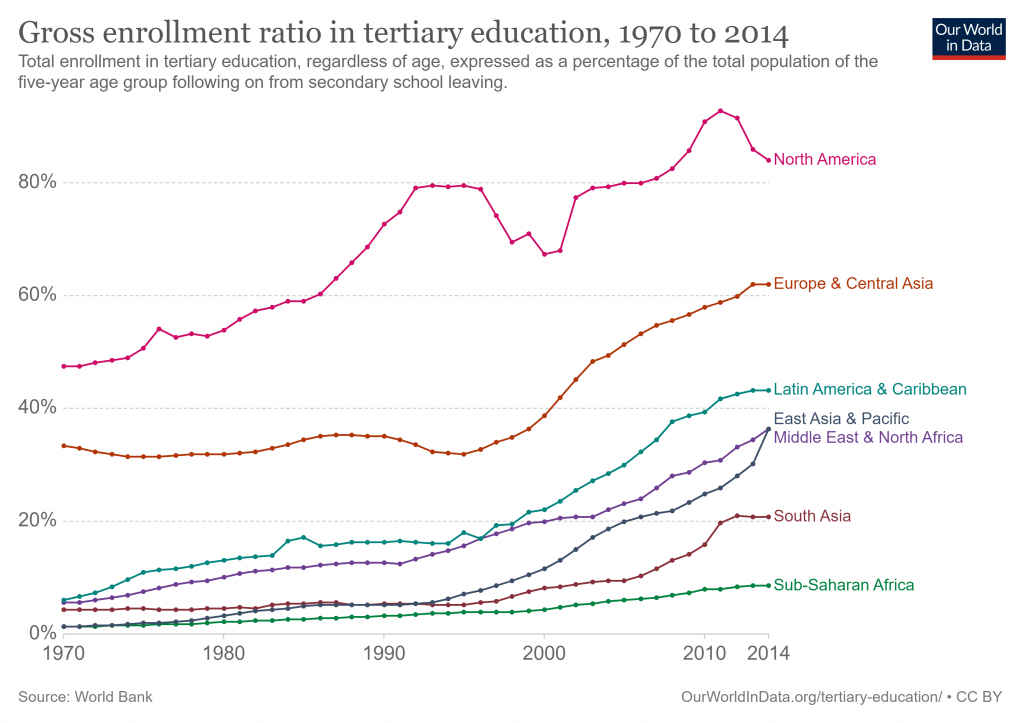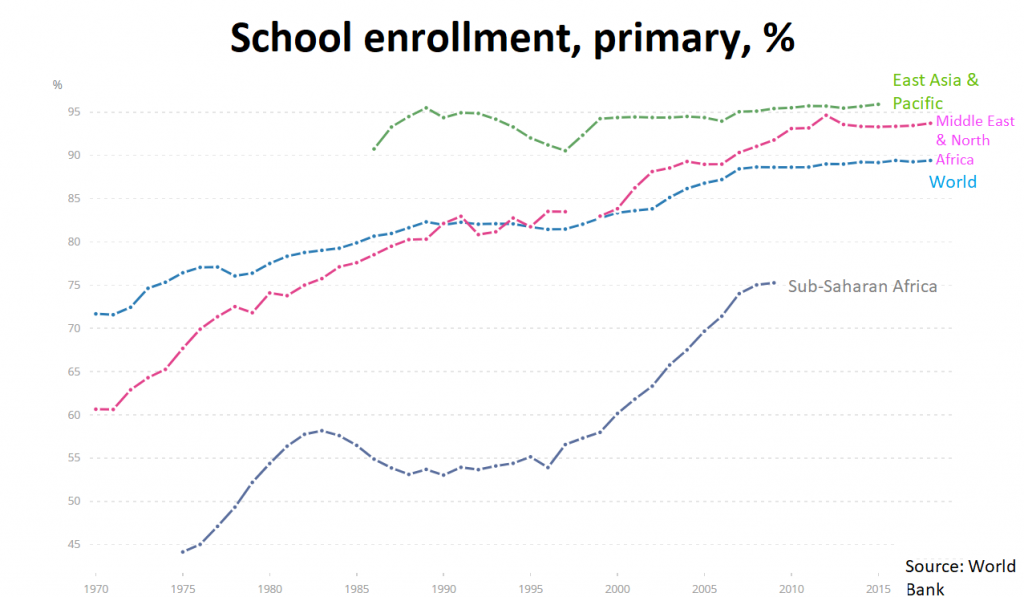LET US THINK OF EDUCATION AS THE MEANS OF DEVELOPING OUR GREATEST ABILITIES, BECAUSE IN EACH OF US THERE IS A PRIVATE HOPE AND DREAM WHICH FULFILLED CAN BE TRANSLATED INTO BENEFIT FOR EVERYONE AND GREATER STRENGTH FOR OUR NATION. ONE PERSON CAN MAKE A DIFFERENCE AND EVERYONE SHOULD TRY
John F. kennedy
It is not an understatement to say education is the most important factor in the growth of any country. Indeed it upholds the present generation, but it can also elevate future generations. Having a modern education system gives countries, developing and developed, a way to create a better future than the one they experience now. Education creates the infrastructure needed to build bridges into a new and better way of living. For this week’s post, we have moved on from Reduced Inequalities and are discussing Quality Education.
Education is a very broad and complex issue. Therefore, our discussion will have two fronts: education reform in advanced economies and improvements needed in developing nations.
Reform in Advanced Economies
Advanced economies are currently experiencing a skills gap amongst their workforce. As more people are pushed into college, the gig economy grows, and automation continues to disrupt, this gap will continue to widen.
Inability to pay for college is no longer an issue across the developed world. If one can’t afford their tuition they can receive a loan from a private or public institution. As a result, more people have been pushed into universities than ever before. But the jobs waiting for these fresh-faced graduates often don’t require a degree. This means our idea of tertiary education must change to meet the demands of our changing world.
Instead of going into ten of thousands of dollars in debt, more people should be pushed towards technical schools. Skills such as carpentry, metallurgy, and plumbing are hard skills to come by nowadays and are more lucrative than one might expect. But education should be more than one phase of your life. It should be a continuous process. Too many adults finish their education at a young age and fail to ever continue. If the dynamism of many developed nations is to persist it must reeducate and reskill their citizens throughout their lifetime.
A continuous education puts more responsibility on the shoulders of corporations. Middle market companies, companies with revenues between $1 million and $1 billion, are the backbone of any economy. According to the Brookings Institute, only 45% of middle-market companies offer retraining programs, and 61% lack job advancement programs (Brookings 2019). If upward mobility is to be stimulated the private sector must lend a helping hand.

Improvements in Developing Nations
Shifting to developing nations, the solutions become less clear. More often than not, education is accessible and in demand. According to Esther Duflo, the author of Poor Economics, primary school enrollment in Subsaharan Africa increased 16% and Asia 13%, while the amount of school-aged children not enrolled dropped from 103 million in 1999 to 73 million in 2006 (Duflo 2012). Clearly, it is not an issue of supply and demand, but instead of quality.

A common trend across the developing world is high absentee rates for both teachers and students. Teachers miss an average of one out of five days while their students experience absentee rates between 14% and 50% (Duflo 2012). Earning a good job requires children to be properly educated and prepared for the skills needed in the future.
While it is tempting to solely place the blame on school systems, there also has to be cooperation from firms as well. Very few people will feel incentivized to earn their education if they don’t see any current or future rewards. Companies can play a positive role in their communities by offering more mentor and apprenticeships. This will create a continuous positive cycle where curious minds looking to make their place in the world pair with companies looking to help them grow.
Education unlocks, in a sense, the inner potential within us all. Making sure our education systems work for everyone ensures a brighter future for all. An educated populace is capable of tackling the most troubling problems the world faces. Any issue we collectively experience-climate change, rampant inequality, or homelessness-can be better solved with a better-educated world.
Works Cited
Banerjee, Abhijit V., and Esther Duflo. Poor Economics: A Radical Rethinking of the Way to Fight Global Poverty. PublicAffairs, 2012.
Foster, Peter. “Boris Johnson’s Education Reforms Face Big Hurdles, Experts Warn.” Subscribe to Read | Financial Times, Financial Times, 12 Oct. 2020, www.ft.com/content/d765104c-3edc-4b2b-babe-ceadfa5c2abf.
Levesque, Elizabeth Mann. “Understanding the Skills Gap-and What Employers Can Do about It.” Brookings, Brookings, 6 Dec. 2019, www.brookings.edu/research/understanding-the-skills-gap-and-what-employers-can-do-about-it/.


